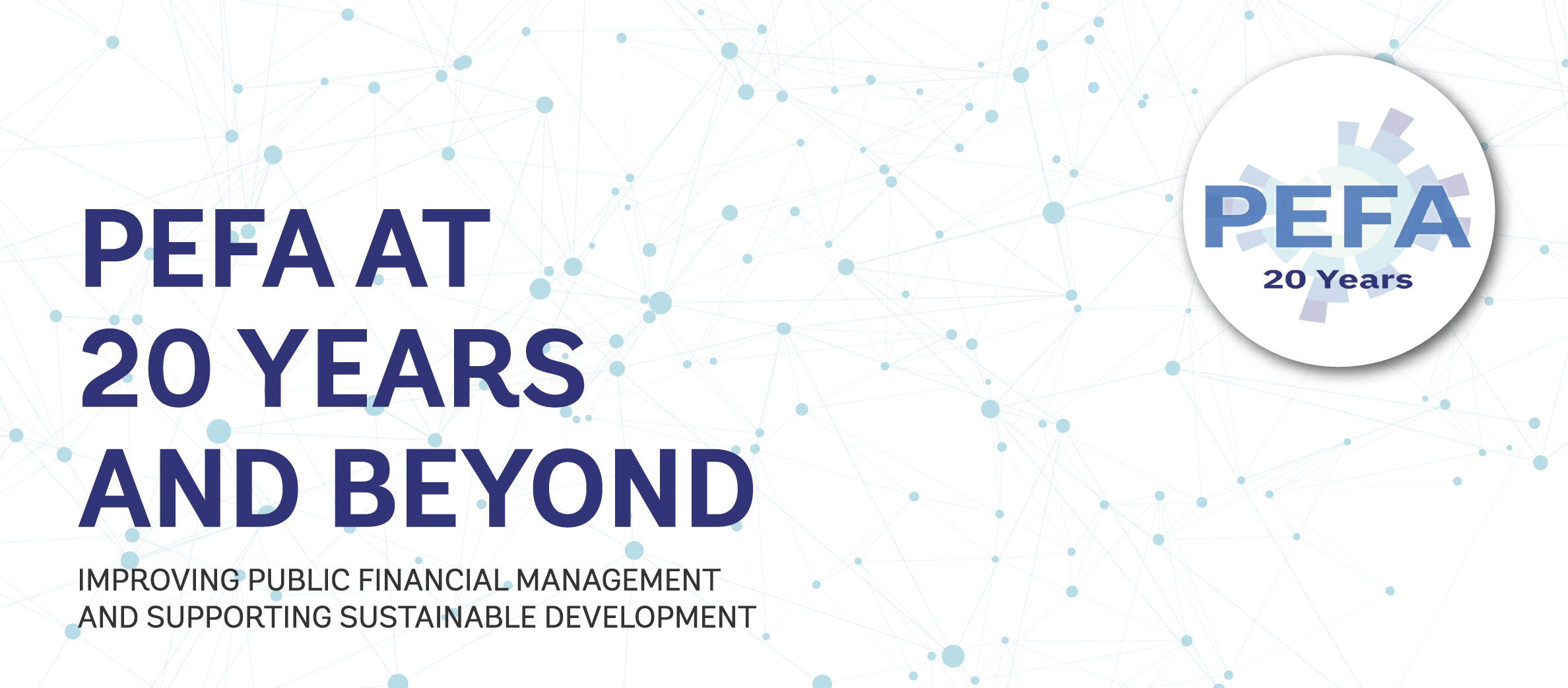 PEFA at 20 Years and Beyond conference
PEFA at 20 Years and Beyond conference
The Public Expenditure and Financial Accountability (PEFA) Secretariat recently celebrated its 20th anniversary of supporting governments in improving their public financial management (PFM) systems. We ran a poll, ahead of the global conference marking the occasion, to assess the pulse of participants from across the world. Here are the results of the four questions we asked, along with our reflections.
1. Can we minimize fraud, corruption, wastage, and inefficiency with strong Public Financial Management Systems?
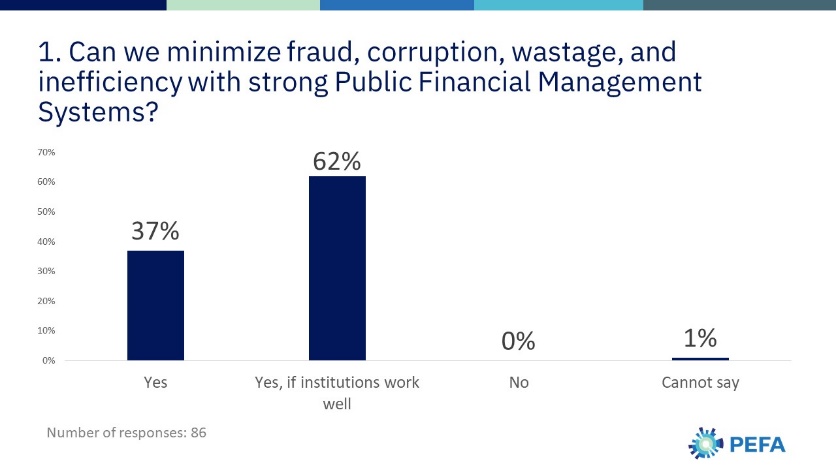
99% of the participants believe that PFM reforms will help reduce fraud, corruption, wastage, and inefficiency. However, 62% of the respondents think that all relevant institutions need to function well in order for PFM reforms to lead to intended results.
Indeed, strong political will, sufficient capacity, ability to adapt to local circumstances, and accountability of institutions are all critical for PFM effectiveness.
2. In post COVID world, which aspect of PFM do you consider as of GREATEST importance?
PFM systems cover the entire budget cycle and weaknesses in one aspect could have an impact on the rest. This is reflected in the answers by the majority of respondents. 67% emphasized that budget preparation, execution, and evaluation are all equally important. Often, this poses a challenge for prioritizing and sequencing PFM reforms. Relatively, budget execution was rated as most important, which reflects the challenges faced in implementing the budgets effectively in several countries. This in turn could affect the delivery of services to citizens, such as funding schools and hospitals. PEFA Global Report on PFM that analyzes PEFA assessment data around the world also supports this view.
3. Do you agree that PFM systems were able to quickly adapt and effectively respond to the pandemic?
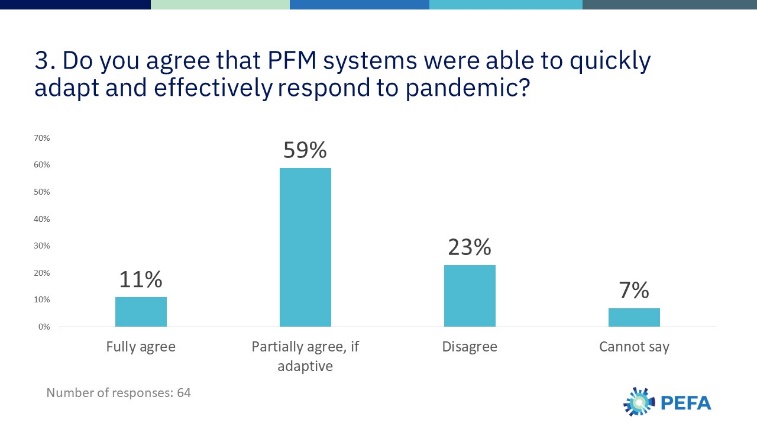
Only 11% of respondents agreed that PFM systems were able to effectively respond to the pandemic , while 23% felt that the response was not good enough or timely. As governments across the world complete their PEFA assessment reports covering the years 2020 and 2021, we will get useful insights on how PFM system performance may have been affected during the pandemic.
4. What do you see as the greatest strength of the PEFA framework as the gold standard for PFM system assessment?
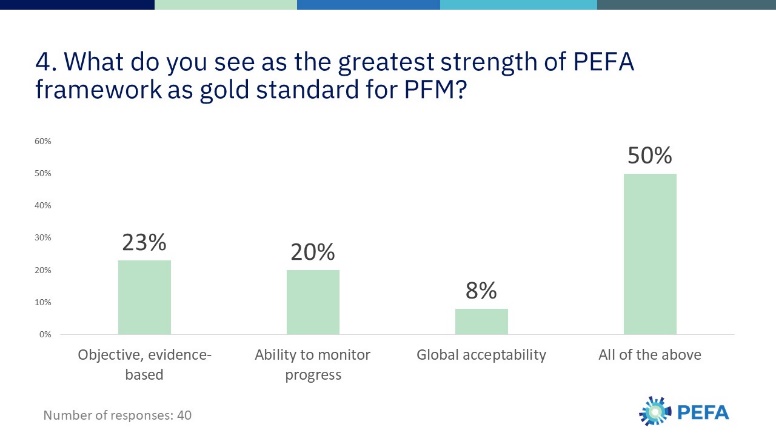
The PEFA assessment framework is objective and evidence-based, enables the government to monitor progress on PFM reforms, and is globally acceptable. Half of the respondents confirmed that all three points are PEFA’s strengths, while close to a quarter of respondents pointed out the importance of ‘objective and evidence-based nature’ and ‘enabling governments to monitor progress’ over time, respectively.
The poll results emphasized the critical role PFM systems play in tackling corruption and waste, but also highlighted the need for PFM systems to be able to better respond to crises and shocks. The Association of Chartered Certified Accountants’ (ACCA) survey with practitioners around the world found that the deterioration of transparency and accountability of PFM systems has been a concern (although this varied across regions), when PFM systems were adapted to help tackle the crisis quickly, for example to fast-track financing for tests and vaccines.
The new round of PEFA’s Research Competition is focusing on the questions around transparency, accountability, and integrity of PFM systems including their role during the pandemic.
Globally, PFM practitioners from governments, development partners, and academia need to scale up their collaborative effort to enhance the quality, accountability, and adaptability of PFM systems to support Green, Sustainable, and Inclusive development.
The PEFA initiative, a partnership of nine development partners - European Commission, International Monetary Fund, World Bank, and the governments of France, Norway, Switzerland, the United Kingdom, the Slovak Republic, and the Grand Duchy of Luxembourg, looks forward to continuing to collaborate and support its stakeholders and clients on these PFM challenges.
To learn more about PEFA, visit www.pefa.org






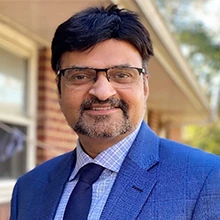
Join the Conversation